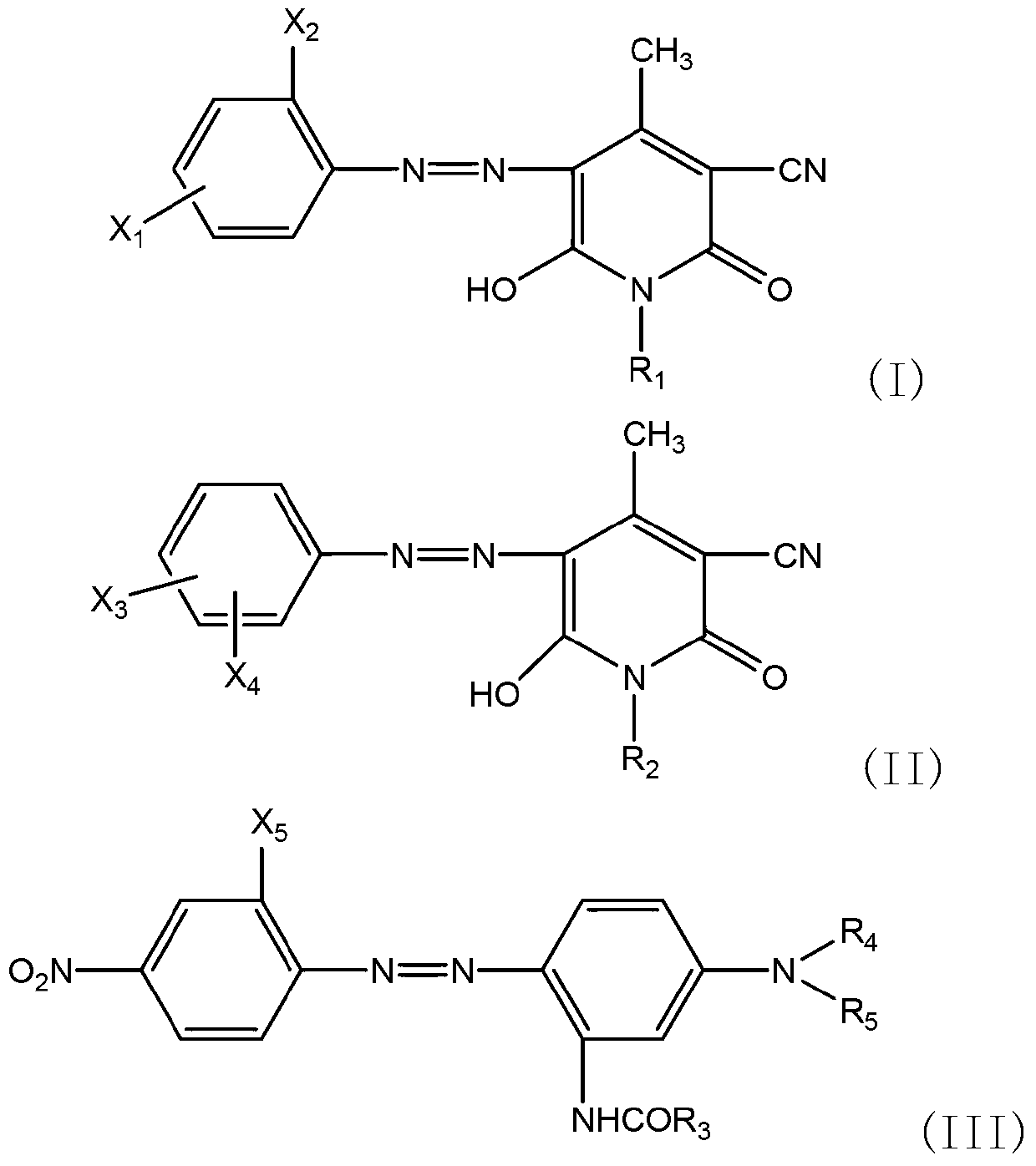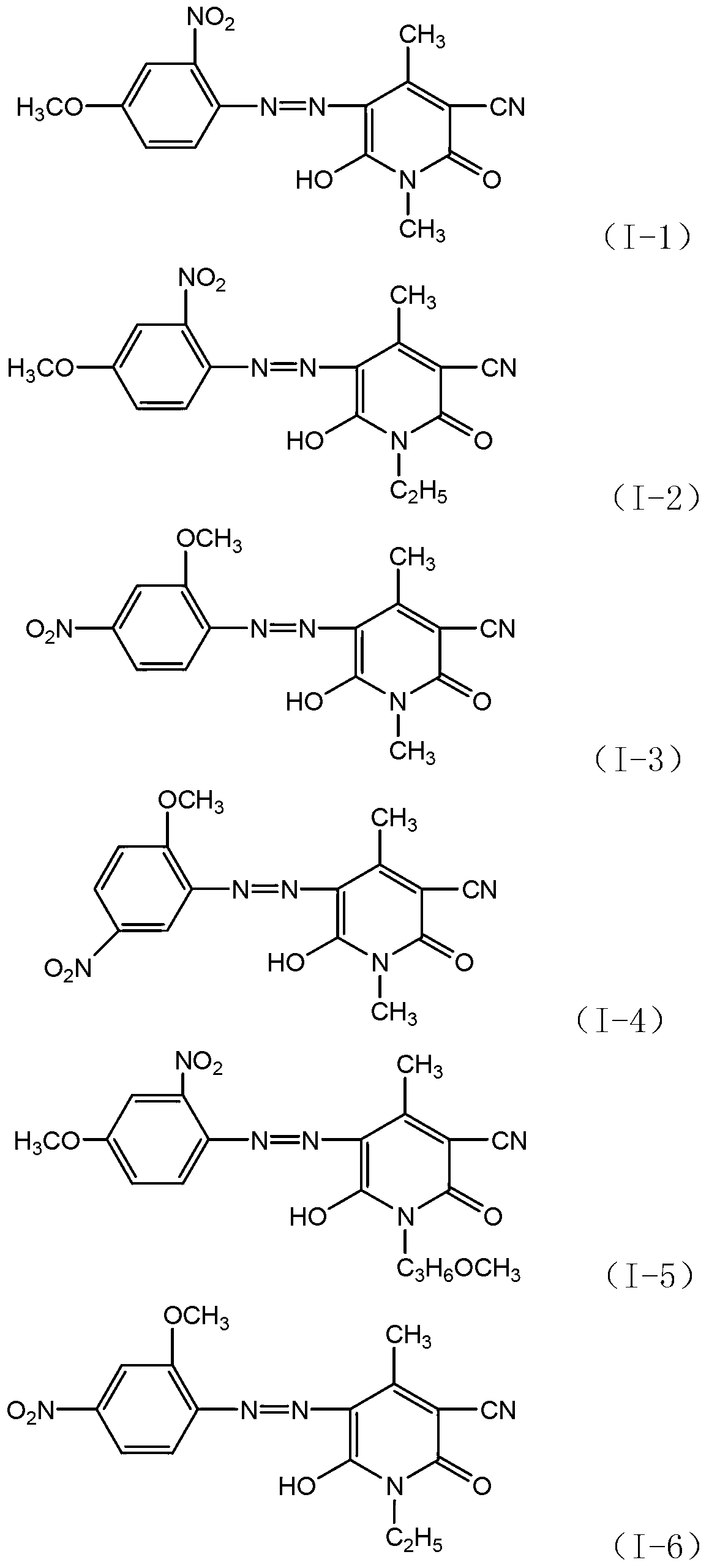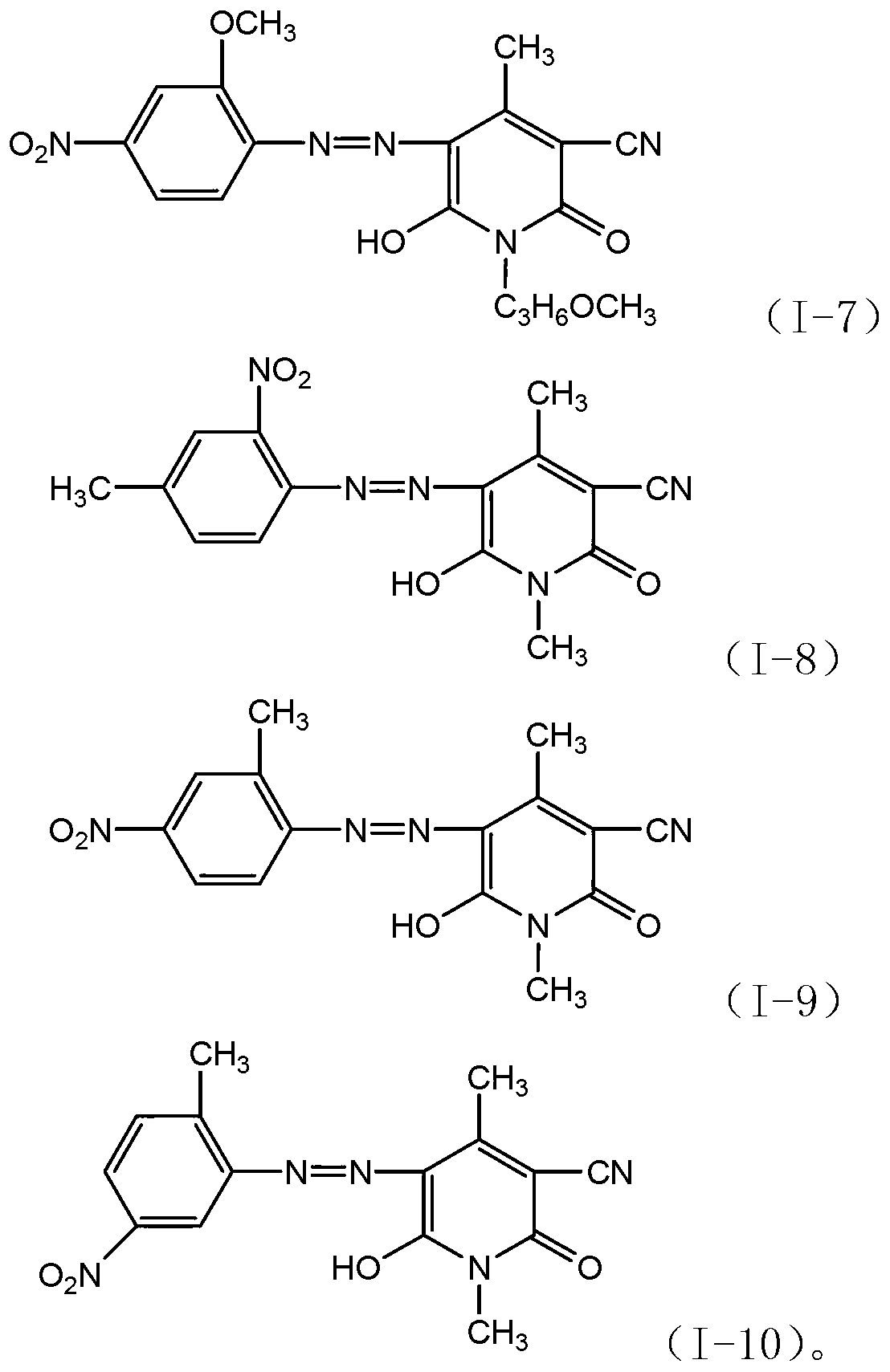Yellow-to-orange disperse dye composition
A technology for disperse dyes and compositions, applied in the directions of organic dyes, dyeing methods, textiles and papermaking, etc., can solve the problems of inability to reflect the heat-resistant migration performance of disperse dyes, the decline of fabric washing fastness, and the decline of fabric color fastness, etc. It can solve the effect of greatly decreasing washing fastness, outstanding washing fastness and high washing fastness
- Summary
- Abstract
- Description
- Claims
- Application Information
AI Technical Summary
Problems solved by technology
Method used
Image
Examples
Embodiment 1
[0039] With the component A of 50 gram formula (I-1) and 42 gram formula (I-2), the component B of 8 gram formula (II-1), the dispersant MF of 120 gram, the lignosulfonic acid of 30 gram Sodium, after adding 650 grams of water and blending, grinding and dispersing and drying to obtain the finished product, the dye can provide the golden yellow that is excellent in various fastness properties of the fabric.
Embodiment 2
[0041] With 23 gram formula (I-1) and 23 gram formula (I-2) component A, 27 gram formula (II-1) component B, 27 gram formula (III-1) component C, 150 gram of sodium lignosulfonate, after adding 600 grams of water to blend, grind and disperse and dry to get finished product, this dyestuff can provide the orange color that each fastness property of fabric is good.
Embodiment 3~19
[0043] According to the method described in embodiment 2, the difference is to adopt the structure and weight of component A, component B and component C in table 1, add 165 grams of auxiliary agents (dispersant MF is 150 grams, sodium lignosulfonate 15 grams), add 600 grams of water and blend to make a slurry, grind and disperse, dry, and make a finished product. The dye can provide the yellow to orange hue that is excellent in each fastness performance of the fabric.
[0044] Table 1
[0045] implement
PUM
 Login to View More
Login to View More Abstract
Description
Claims
Application Information
 Login to View More
Login to View More - R&D
- Intellectual Property
- Life Sciences
- Materials
- Tech Scout
- Unparalleled Data Quality
- Higher Quality Content
- 60% Fewer Hallucinations
Browse by: Latest US Patents, China's latest patents, Technical Efficacy Thesaurus, Application Domain, Technology Topic, Popular Technical Reports.
© 2025 PatSnap. All rights reserved.Legal|Privacy policy|Modern Slavery Act Transparency Statement|Sitemap|About US| Contact US: help@patsnap.com



